Chronic Stress = Inflammation in the Body
- What are Antioxidants?
- 4 Ways to Optimize Your Antioxidant Levels
- Create an Anti-Inflammatory, Antioxidant-Rich Diet
- Get the Right Nutrients
- Take Anti-Inflammatory & Antioxidant Supplements
- Optimize Antioxidants through Lifestyle Factors
Chronic stress earns a bad reputation, and deservedly so. But some stress can actually make you stronger and more resilient to life’s demands.
That same process occurs within your cells. At low or moderate levels, your body can manage free radicals, which are unstable, electrically charged molecules that react with other molecules and create damage.
In fact, a little cellular stress can make your defense system stronger. Optimal amounts of free radicals can benefit cellular responses and immune function. At high concentrations, however, these free radicals can generate oxidative stress or an imbalance between free radicals and the antioxidants that protect your cells.
This oxidative stress — when free radicals overwhelm your body’s antioxidant defenses — can contribute to chronic and degenerative problems including cancer, autoimmune disorders, the aging process, as well as cardiovascular and neurodegenerative diseases.
Oxidative stress doesn’t exist in a vacuum. It often occurs with chronic inflammation, a low-grade inflammation that festers for months or years that Time magazine called “The Secret Killer.” Together, these two culprits contribute to nearly every disease and negatively affects your immune system.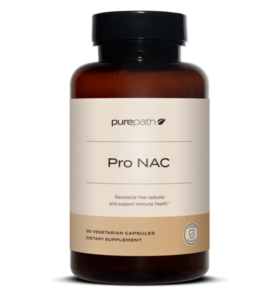
What are Antioxidants?
You often hear that a food is high in antioxidants, or that a supplement provides antioxidant benefits. But what does this actually mean?
Antioxidants help to counteract oxidative stress. They neutralize excess free radicals to protect cells, prevent illness, and reduce inflammation. Imagine antioxidants as the body’s army. You want a solid, diverse army to protect against too many free radicals, which can lead to oxidative stress.
Your body can naturally produce some antioxidants, whereas others you need to get from diet or antioxidant supplements.
4 Ways to Optimize Your Antioxidant Levels
To support the immune system, reduce inflammation, and manage free radicals, incorporate lots of anti-inflammatory foods high in antioxidants along with a few valuable nutrients and lifestyle factors. These nutrients are your front-line defense against oxidative stress.
Fortunately, optimizing antioxidant levels to reduce inflammation and boost the immune system needn’t be complicated with these four strategies.
1. Create an Anti-Inflammatory, Antioxidant-Rich Diet
An immune-boosting diet eliminates foods low in antioxidants that cause inflammation. These inflammatory foods include grain-fed meats, vegetable oils, and most processed foods.
“When you expose monounsaturated or polyunsaturated fatty acids [in vegetable oils] to high temperatures, they become oxidized, or damaged,” says Mark Hyman, MD, in Food: What the Heck Should I Eat?. “ When that happens, the fat can turn rancid and harmful.”
Inflammatory omega-6 fatty acids in vegetable oils and grain-fed meat also crowd out the anti-inflammatory omega-3 fatty acids. We eat 20 times or more of these inflammatory fatty acids compared to anti-inflammatory omega 3s.
Antioxidant-rich and anti-inflammatory foods often overlap. Here are some of the best foods high in antioxidants:
- Wild-caught fish: Among your best, most environmentally friendly choices include wild Alaskan salmon, wild-caught Atlantic mackerel, and sardines packed in olive oil. These fish provide excellent amounts of anti-inflammatory omega-3 fatty acids eicosapentaenoic acid (EPA) and docosahexaenoic acid (DHA) to reduce inflammation. Astaxanthin, a carotenoid that gives salmon and other fish their pinkish hue, also provides free-radical scavenging and antioxidant benefits. Check out the Environmental Working Group’s seafood buying guide.
- Flaxseeds and chia seeds: They contain the anti-inflammatory omega-3 fatty acid α-Lipoic acid (ALA) and are also high in antioxidants.
- Non-starchy vegetables: Perhaps the ultimate anti-inflammatory, antioxidant food, organic leafy and cruciferous vegetables including spinach, broccoli, and kale provide a powerful nutrient profile for very few calories.
- Herbs and spices: Even in small amounts, these have particularly high amounts of antioxidants. You have plenty of options, including turmeric, which provides antioxidant and anti-inflammatory support. Throw a little ginger into your protein smoothie or enjoy ginger tea — this antioxidant, anti-inflammatory spice is a nutrient powerhouse. Ditto for cinnamon, which packs an antioxidant, anti-inflammatory punch that also helps control blood sugar levels.
- Berries: Their high content of phytochemicals including flavonoids, tannins, stilbenoids, phenolic acids, and lignans make berries antioxidant superstars.
- Nuts: Raw almonds and pecans are good choices, but one study that looked at the antioxidants in nine types of raw and roasted nuts and two types of peanut butter found that walnuts were the best antioxidant-rich nut.
- Coffee and tea: Black organic coffee provides antioxidants, as does green tea, which earns praise for its high amount of catechins including epigallocatechin gallate (EGCG). Black tea is an even better choice as it also contains catechins, quercetin, and flavonols.
- Chocolate: Not all chocolate makes the grade — look for dark chocolate with at least 85 percent cacao that contains about five or so grams of sugar per serving and limit yourself to one serving.
You don’t need to incorporate all of these antioxidant-rich, immune-boosting foods and beverages all at once. Maybe try one or two new foods every week while reducing your intake of processed foods and other inflammatory foods.
2. Get the Right Nutrients
Many of these foods above contain nutrients and natural anti-inflammatories that support the immune system and boost antioxidants. At the very least, you should also take a good multivitamin (for men, women, and kids) that covers the nutrient bases you might not get from food.
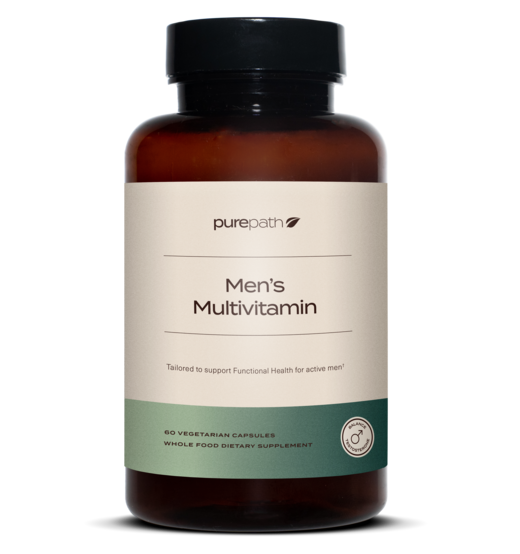 |
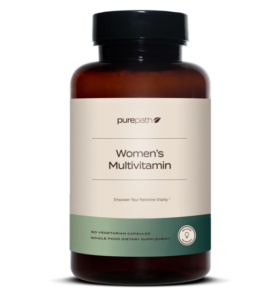 |
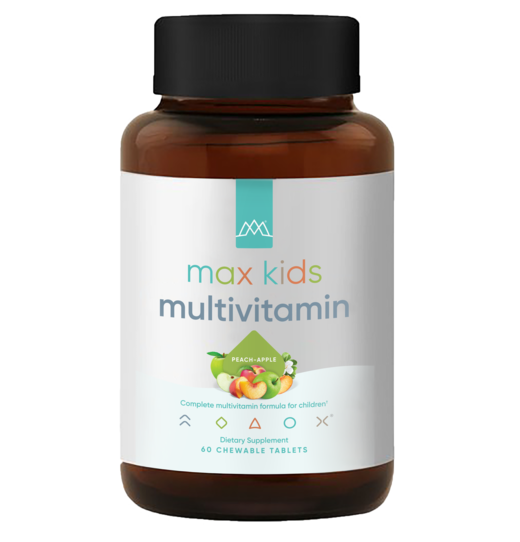 |
Beyond that, certain vitamins, minerals, and other nutrients can provide antioxidants and other benefits. Increase the intake of these immune-supporting foods or look for supplements that provide these nutrients. They include:
- Zinc: Rich in nuts, seeds, wild-caught fish, grass-fed beef, and eggs contain good amounts of this mineral.
- Magnesium: Leafy greens, nuts, and seeds are good sources of this mineral. Many people are low in magnesium, making supplementing helpful.
- Vitamin D: Wild-caught fatty fish and eggs are two of the few dietary sources of this immune-supporting mineral, making a vitamin D supplement crucial to get therapeutic amounts.
- Omega-3 fatty acids: Numerous studies support their anti-inflammatory benefits. If you’re not eating wild-caught fish regularly, consider supplementing with a high-quality Omega supplement formula.
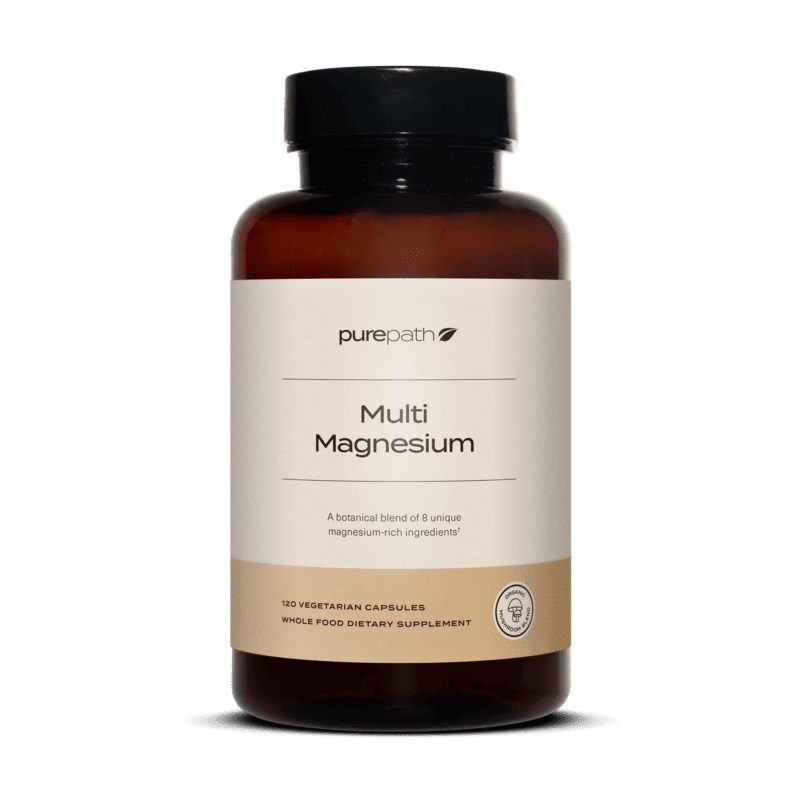 |
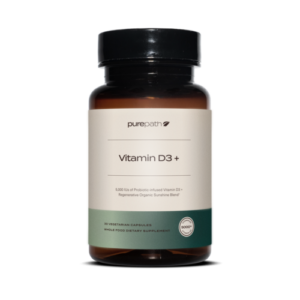 |
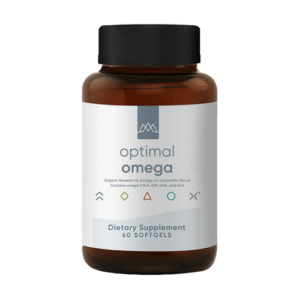
|
3. Take Anti-Inflammatory & Antioxidant Supplements
The right supplements can also help you boost antioxidants and reduce inflammation, contributing to a stronger immune system. 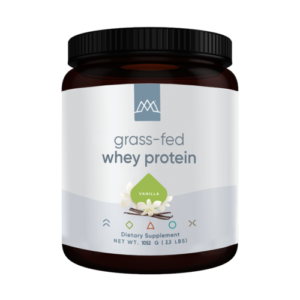 One worth mentioning is glutathione. As your body’s most abundant antioxidant that also recycles other antioxidants, glutathione protects against oxidative stress and chronic inflammation. Things like stress, infections, and a bad diet impair your body’s ability to make optimal amounts of this antioxidant.
One worth mentioning is glutathione. As your body’s most abundant antioxidant that also recycles other antioxidants, glutathione protects against oxidative stress and chronic inflammation. Things like stress, infections, and a bad diet impair your body’s ability to make optimal amounts of this antioxidant.
Researchers debate the efficacy of oral glutathione supplements. A more practical strategy is to take supplements that contain the building blocks of glutathione. They include:
- Whey protein: This popular protein powder contains building blocks to make glutathione. A randomized, double-blind controlled trial found that whey protein improves nutritional status, glutathione levels, and immune function in cancer patients. Look for a hormone-free, 100 percent grass-fed whey protein with at least 20 grams of protein per serving.
- N-Acetyl-L-Cysteine (NAC): Cysteine is the rate-limiting step for glutathione synthesis. NAC supplements, which provide this amino acid, make a powerful free-radical scavenger in its own right while optimizing glutathione status. Look for an N-Acetyl-L-Cysteine (NAC) that contains nitrogen-rich glycine. One animal study found this amino acid could protect diabetics against the disease’s immunodeficiencies. A powder NAC supplement makes getting efficacious doses of these two nutrients simple without swallowing several pills.
4. Optimize Antioxidants through Lifestyle Factors
Focusing on healthy lifestyle factors will also help give your immune system a boost. These strategies provide an excellent foundation to do all that and more.
– Exercise regularly: Observational studies and clinical trials show that physical activity can reduce oxidative stress and inflammation. Researchers find regardless of intensity, volume, and type, exercise increases your body’s antioxidant defenses. This exercise guide can provide simple, effective strategies for a quick workout.
– Find strategies to manage stress: Research shows that increased oxidative stress often accompanies severe life stressors including traumatic events. Chronic stress can also increase inflammation and impact the immune system. Yoga, meditation, deep breathing, and brisk walking are some of the best ways to reduce the impact of stress on your life.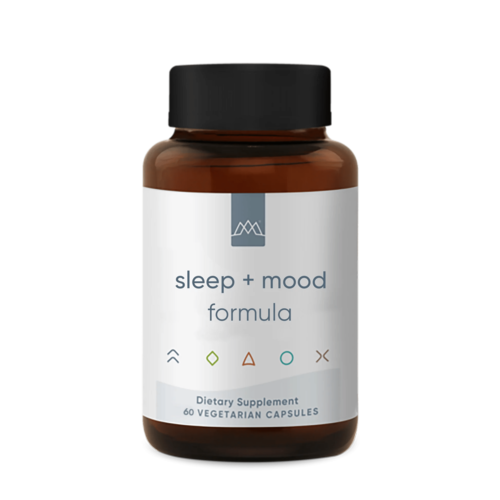
– Maximize sleep quantity and quality: Researchers associate sleep quality with inflammation, oxidative stress, and antioxidant levels. Poor sleep adversely increases inflammation and oxidative stress while lowering your body’s antioxidant defense. Aim for at least seven or eight hours of sleep every night. Use a quality sleep-support formula if you have trouble falling or staying asleep.
– Visit a chiropractor: One study found that nine people suffering from chronic low back pain who visited a chiropractor normalized the mediators of inflammation. A chiropractor can also customize a protocol that addresses your condition to leave you feeling better. Find a chiropractor near you today!
Altogether, these strategies provide a solid foundation for managing oxidative stress, boosting antioxidants, and reducing inflammation to help support the body’s risk of disease.
Focusing on anti-inflammatory, antioxidant-rich foods and nutrients along with the right lifestyle modifications can help you optimize health and cultivate your happiest, most vibrant life.



